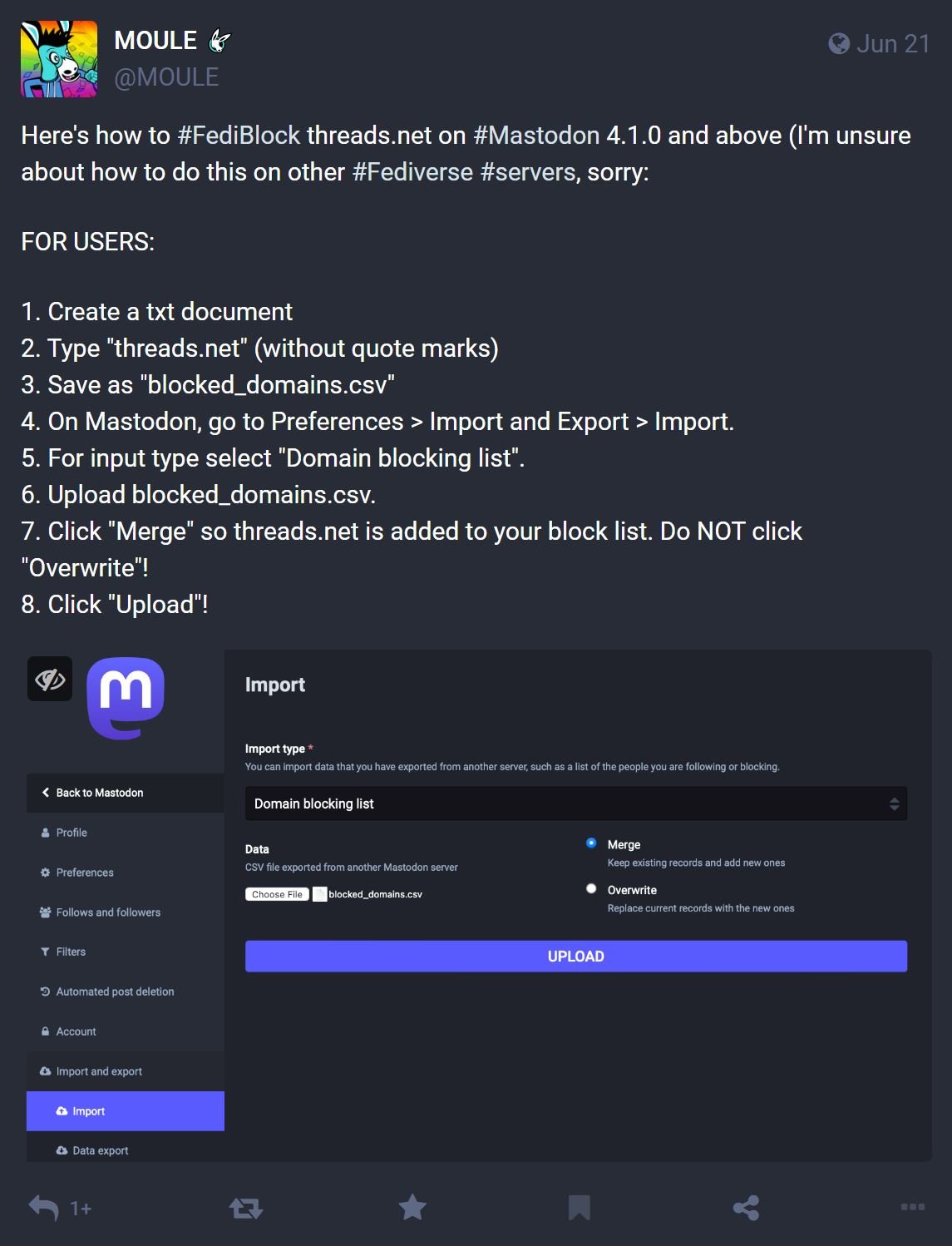this post was submitted on 05 Jul 2023
1836 points (96.8% liked)
Technology
60301 readers
3567 users here now
This is a most excellent place for technology news and articles.
Our Rules
- Follow the lemmy.world rules.
- Only tech related content.
- Be excellent to each another!
- Mod approved content bots can post up to 10 articles per day.
- Threads asking for personal tech support may be deleted.
- Politics threads may be removed.
- No memes allowed as posts, OK to post as comments.
- Only approved bots from the list below, to ask if your bot can be added please contact us.
- Check for duplicates before posting, duplicates may be removed
Approved Bots
founded 2 years ago
MODERATORS
you are viewing a single comment's thread
view the rest of the comments
view the rest of the comments

Spontaneous idea of how to use copyright law for keeping Meta out of the Fediverse (more for fun):
Introduction: Parts of the Fediverse, including Mastodon, are software licensed under the APGL license. This license is a great choice because it forces the ones running the software to grant users access to the source code. GPL for example would allow to run proprietary services based on GPL code. The AGPL does not. Companies like Meta and Google will likely not use AGPL code because it might force them to also publish their proprietary systems behind the scenes. However, this does not help much for keeping the Fediverse save. They simply implement their own software which will not be open source.
Therefore we may need another approach. Defederating is the simplest and in my opinion currently the best. It's easy and keeps people in control.
However, there could be some 'automatic' approach using copyright law. It's a hack which allows to use existing law to regulate the way instances can federate.:
Open question is, who owns the copyright of X?
Haven't you seen what RHEL is doing? Apparently if you're big enough you can just say fuck that. I mean who you gonna answer to? Is anybody really gonna take this all the way up to the supreme court?
No, haven't seen. What is RHEL doing?
IBM decided to only provide access to RHEL source code to those with a developer subscription, effectively putting RHEL behind a paywall and putting it behind an additional license you have to accept with your subscription. I mean, this seems to be pretty clearly against the GPL license that RHEL is not only released under but also the GPL licenses of the many components that RHEL uses. The GPL has some provision for, for example, charging money for source code distribution since that does indeed have a cost, but because they make you accept a second license with your subscription you can't just turn around and give distribute it yourself to anyone who needs it - which is what you should be able to do with any GPL software. Well, you can do it, they just reserve the right to terminate your contract if you do. So you can do it once I guess? Then afterwards you no longer have access to updates. But who's gonna make IBM answer for this? Don't think anybody really can.